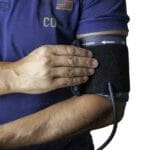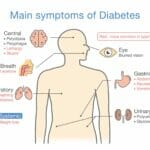You have recently suffered from a stroke, or you know someone who has. You may have questions about the medications prescribed to prevent another stroke. Stroke medication plays an essential role in preventing a second stroke, managing underlying conditions and overall recovery after a stroke. In this article, we will discuss the most common post-stroke medications that your doctor may prescribe, their respective actions, possible side effects and some precautions to consider.
Stroke is a serious medical condition that often requires immediate treatment and long-term management. Post-stroke medications play a crucial role in preventing further complications, promoting recovery, and reducing the risk of recurrent strokes.
Antiplatelet Drugs
Antiplatelet drugs are medications that prevent blood clots from forming by inhibiting platelets from sticking together and blocking a blood vessel. They are critical in preventing stroke or transient ischemic attack (TIA), also known as a “mini-stroke.” The Stroke Foundation recommends that all stroke and TIA patients should be taking an antiplatelet drug unless there are specific reasons not to. Here are the most commonly used antiplatelet medications after stroke:
Aspirin
Aspirin is a popular and affordable antiplatelet medication prescribed after a stroke. Low dose aspirin (75-150mg) has been found to be as effective as high dose aspirin (300-325mg), with fewer side effects. Aspirin is usually prescribed for an extended period, typically for life, except in specific circumstances. Your doctor will determine the appropriate dose and duration, depending on your medical situation and risk factors.
Clopidogrel
Clopidogrel, also known as Plavix, is another antiplatelet commonly prescribed to people who have had a stroke or are at high risk of having one. It works by preventing blood clots from forming and reduces the risk of a secondary stroke or heart attack. It is often prescribed in combination with aspirin for a short period, usually up to a year.
Dipyridamole and aspirin
Agronox is a less common antiplatelet medication that is a combination of aspirin and dipyridamole. It works by reducing blood clots’ formation by preventing platelets from sticking together. It may be recommended by your doctor instead of clopidogrel or aspirin alone.
Anticoagulant Drugs
Anticoagulants, also known as blood thinners, are medications that prevent clots from forming in the blood. They are often prescribed to prevent blood clots from getting bigger, prevent new ones from forming, and manage certain heart conditions that increase the risk of clots. Here are some commonly used anticoagulant medications:
Warfarin (Coumadin/Maraven
Warfarin is an anticoagulant medication that is usually prescribed to patients with atrial fibrillation or a history of blood clots. It works by reducing the blood’s ability to form clots by decreasing the amount of vitamin K that the body uses for clotting. While effective, it requires regular monitoring, and one must be careful about what they eat. Warfarin interacts with food high in vitamin K and can cause serious bleeding if taken in excess or taken with other drugs.
Heparin
Heparin is a fast-acting anticoagulant medication often used for emergency treatment of a stroke or heart attack. It works by inhibiting blood clotting factors, preventing clots from forming, and reducing the risk of an ischemic stroke. Heparin is usually administered through an injection and must be given under close medical supervision.
Other oral coagulants
Oral anticoagulants, also known as NOACs (novel oral anticoagulants) or DOACs (direct oral anticoagulants), are newer anticoagulant medications that have been approved for use in recent years. They work by inhibiting specific clotting factors and preventing clots from forming. Some common oral anticoagulants include apixaban, rivaroxaban, edoxaban, and dabigatran. They are typically prescribed for patients who are at high risk of stroke or a recurrent embolism caused by blood clots.
Blood Pressure Medications post stroke
Managing blood pressure is an important part of post-stroke care. High blood pressure can increase the risk of another stroke, so it’s essential to keep it under control. Fortunately, there are a variety of medications available that can help manage high blood pressure after a stroke. Here are some key medications to consider:
Angiotensin Converting Enzyme inhibitors
ACE inhibitors reduce the production of hormones that cause your arteries to constrict and raise your blood pressure. They also help protect against further damage from strokes by preventing clots from forming in your arteries and veins.
Beta blockers
Beta blockers work by blocking certain receptors in the brain that stimulate heart rate and contractions, which helps lower both systolic (top number) and diastolic (bottom number) readings on a person’s blood pressure reading.
Calcium channel blockers
These drugs block calcium from entering cells in the walls of arteries, which relaxes them and lowers resistance against which your heart must pump out its supply of oxygenated blood throughout the body; this reduces overall systemic arterial tension or “blood pressure” as well as reducing strain on cardiac muscles during contraction/relaxation cycles for improved efficiency with less effort expended per heartbeat cycle over time resulting in lower resting pulse rates & reduced stress levels associated with elevated BP readings prior to treatment intervention(s).
Angiotensin II receptor blockers
ARBs, also known as angiotensin II receptor blockers, are medications that block the action of angiotensin II, a hormone that regulates blood pressure. Common ARBs include losartan, candesartan, and olmesartan.
Diuretics
Diuretics work by increasing urine output thereby helping rid excess fluids buildup within tissues and organs including those found within the cardiovascular system pathways such as veins and capillaries where they may be contributing factors towards hypertension or other forms related conditions leading towards higher than normal BP readings when left untreated over extended periods without proper medical interventions being applied accordingly for best results achieved through long term management strategies implemented going forward into future ahead.
Statin Medications
Statin medications are cholesterol-lowering medications that are prescribed to prevent a second stroke or a heart attack. They work by reducing the level of cholesterol in the body, a significant contributor to blood clot formation, and reducing inflammation, especially in the brain. Statins also have additional benefits, including reducing the risk of future cardiovascular events and improving overall heart function. Some commonly used statin medications include Atorvastatin or Lipitor, Fluvastatin, Lovastatin, Pravastatin, Simvastatin, or Rosuvastatin (Crestor).
Precautions to Consider
It is important to take all stroke medication as prescribed by your GP. If you have any concerning side effects, let them know, and they may be able to adjust your dosage or switch you to another medication. Always follow up with your medical provider regularly, as they may need to fine-tune your medication regimen over time.
In conclusion, there are several medications that one may be prescribed after having a stroke. There are antiplatelet drugs like aspirin and Plavix, anticoagulants like warfarin and heparin, statin medications to lower cholesterol levels, and high blood pressure medications like ACE inhibitors and beta-blockers. Each medication has its specific action, benefits, and precautions, and it is essential to take them as prescribed. If you have any concerns or questions about your medication, do not hesitate to talk to your doctor or pharmacist for more information. Remember, they are there to help you prevent another stroke and manage your overall health.
References
GoodRx Health. (2021). What Medications Are Usually Prescribed After Having a Stroke? Retrieved from https://www.goodrx.com/health-topic/heart/post-stroke-medications
National Institute of Neurological Disorders and Stroke. (2021). Stroke: Hope Through Research. Retrieved from https://www.ninds.nih.gov/Disorders/Patient-Caregiver-Education/Hope-Through-Research/Stroke-Hope-Through-Research#3200_8
Stroke Foundation. (n.d.). Medications After Stroke or TIA. Retrieved from https://strokefoundation.org.au/what-we-do/for-survivors-and-carers/after-stroke-factsheets/medication-after-stroke-or-tia-fact-sheet

